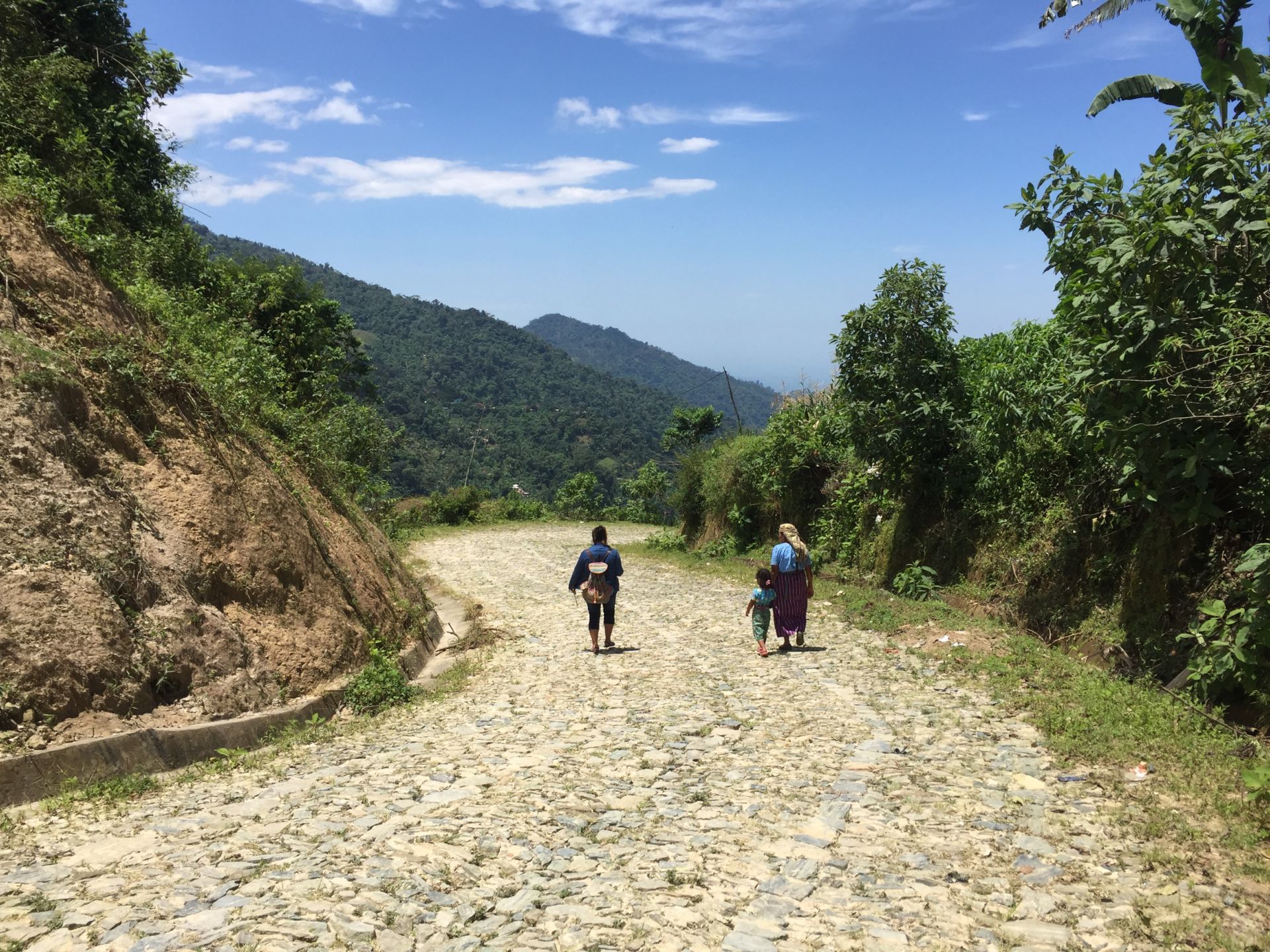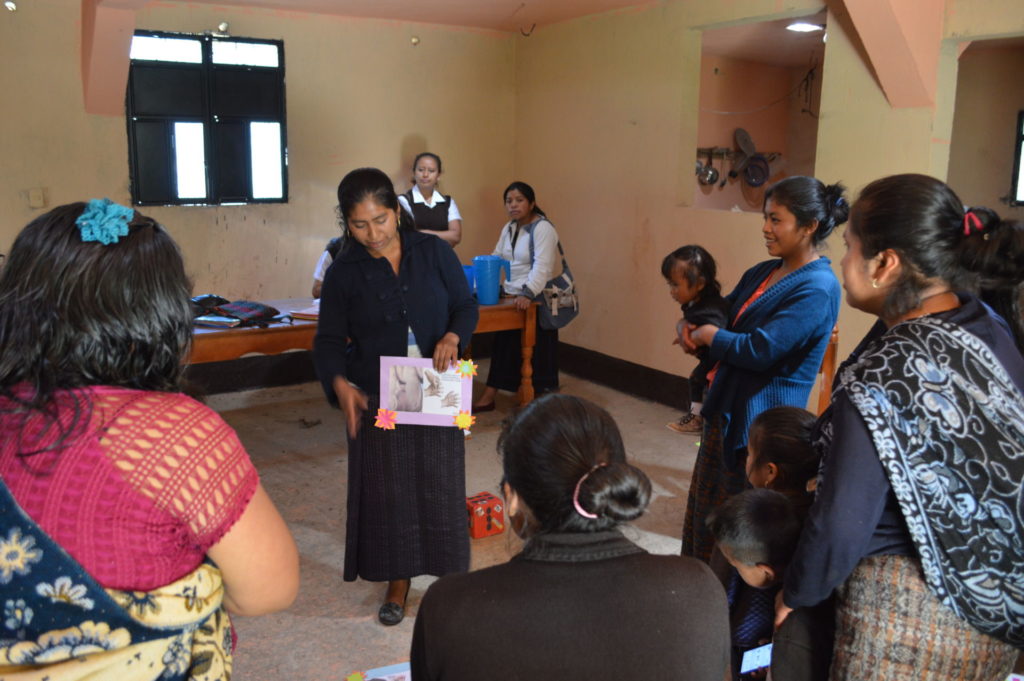Guatemalan Mom Joins Casa Materna Team as Health Promoter
Posted: July 24, 2018
By: Cecilia Gines, Guatemala Program Intern
Help Close to Home
The rural highlands in northwestern Guatemala are dominated by green mountain ranges and dispersed aldeas and caseríos (villages). One of these aldeas is known as Calhuitz, located about nine hours away from Guatemala City, and home to the first Casa Materna in Guatemala, which was opened by Curamericas in May 2009.
Before this, villagers travelled for hours to reach the nearest clinic to get medical attention, incurring high expenses which most people were not able to afford. Additionally, attending a hospital in an urban area led to several difficulties, such as cultural and language barriers between the predominantly Mayan population of the rural highlands and the Spanish-speaking staff at urban health facilities. In geographically isolated communities such as Calhuitz, where poverty and maternal mortality rates are high and where living conditions are poor, the services provided by the Casa Materna can make a substantial difference in the villagers’ everyday lives.
Catarina Juan Baltazar is a 26-year-old mother of two, both of whom were delivered at the Casa Materna. Giving birth at a health facility is safer for both mothers and newborns, and can lead to the reduction of mortality rates.
In Catarina’s own experience with the birth of her daughter, she might have had severe complications had she not gone to the Casa Materna. When she arrived, the staff told Caterina that she had an infection, an issue that if left untreated could take the life of the mother or the baby.
In her words, “At the Casa Materna the staff help us a lot. If a mother has an infection and was at home, what would she do? How would she know if it was an infection or something else?”
The Casa Materna is also close to neighboring communities in the mountainous regions, and it is staffed by locals, making it more culturally-friendly for patients. The indigenous staff provide essential support, especially for first-time mothers that do not know what to expect or what to do when they go into labor.
Catarina recalls how Señora Alma and Doctor Mario assisted her during the birth of her first child: “When the time to give birth comes, we don’t know what to do, they help us with the pains and they encourage us so that we are not afraid. The Casa Materna also has an ultrasound, so mothers like me can see how our babies are . I am very grateful for the help that they have given me and the other mothers in my community.”
Giving Back to her Community
In addition to delivering her children at the Casa Materna, Catarina has been a Health Promoter for five years now in Calhuitz. She started working with the Casa Materna right before she found out she was pregnant with her daughter.
At first, she had concerns about what people in the community would think or say, but her husband was supportive of her taking on this new, leading role in the community and she decided to accept the offer. Catarina teaches the mothers in the community how to care for their newborns, and the importance of breastfeeding, good nutrition, hygiene (especially hand washing with soap), and oral rehydration for a child sick with diarrhea.
“Now I know how to educate,” she says, “I tell moms how to care for their newborn babies. I visit postpartum moms to make sure that they don’t have too much bleeding or any difficulties after the birth. I also check on their babies, to see if they are well or if they are sick, to check their navel to make sure it is drying correctly. I also check on the cleanliness of the house, because if you have bad hygiene then the children or the mother can get sick. That is why I always go out to do my visits.”
As a Health Promoter, Catarina visits the house of the mothers of children under two years old to explain how to care for babies and make sure they are reaching the appropriate height and weight. She also gives Care Group lessons to the Community Health Volunteers, who then talk to neighboring mothers about maternal health and how the Casa Materna can help. Finally, Catarina organizes home workshops where mothers learn about what to feed their children, and how to prepare and cook the nutritious meals using locally-available, affordable foods.
Community Empowerment in Action
The Casa Materna in Calhuitz has rendered important advances for the health of the community. Health education through the Care Groups are just one of the many successful examples of Curamericas’ Community-Based Impact-Oriented methodology.
When interviewed about her experience at the Casa Materna, Catarina expressed how grateful she and the mothers of the community are for all the help and collaboration they receive from Curamericas.
In Catarina’s words, “We don’t have anything to give you but we are very grateful that you have supported us. I hope God is always blessing you.”
Share this Article
Stay Up-To-Date With Curamericas Global
We will not spam, sell or otherwise misuse your information!


